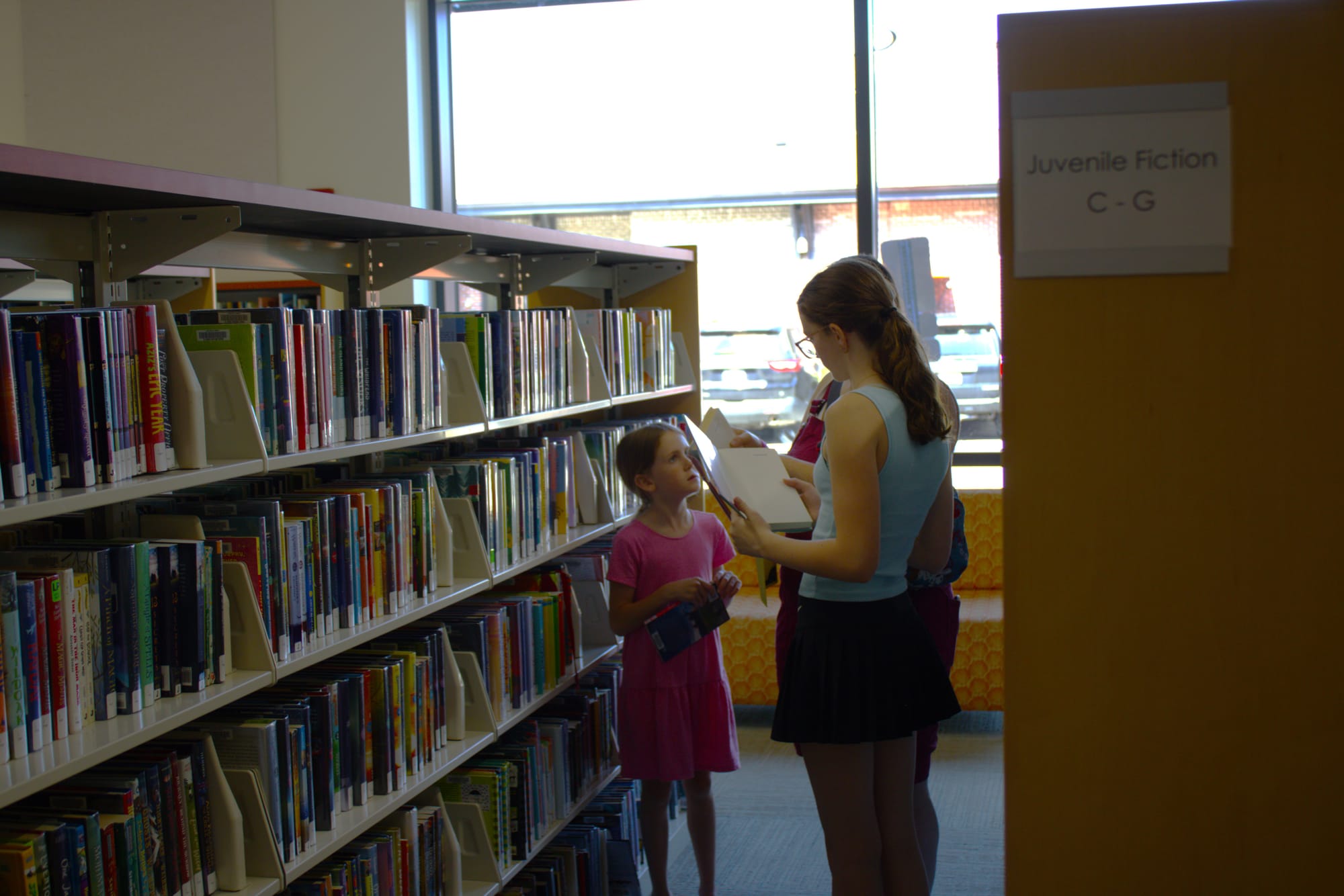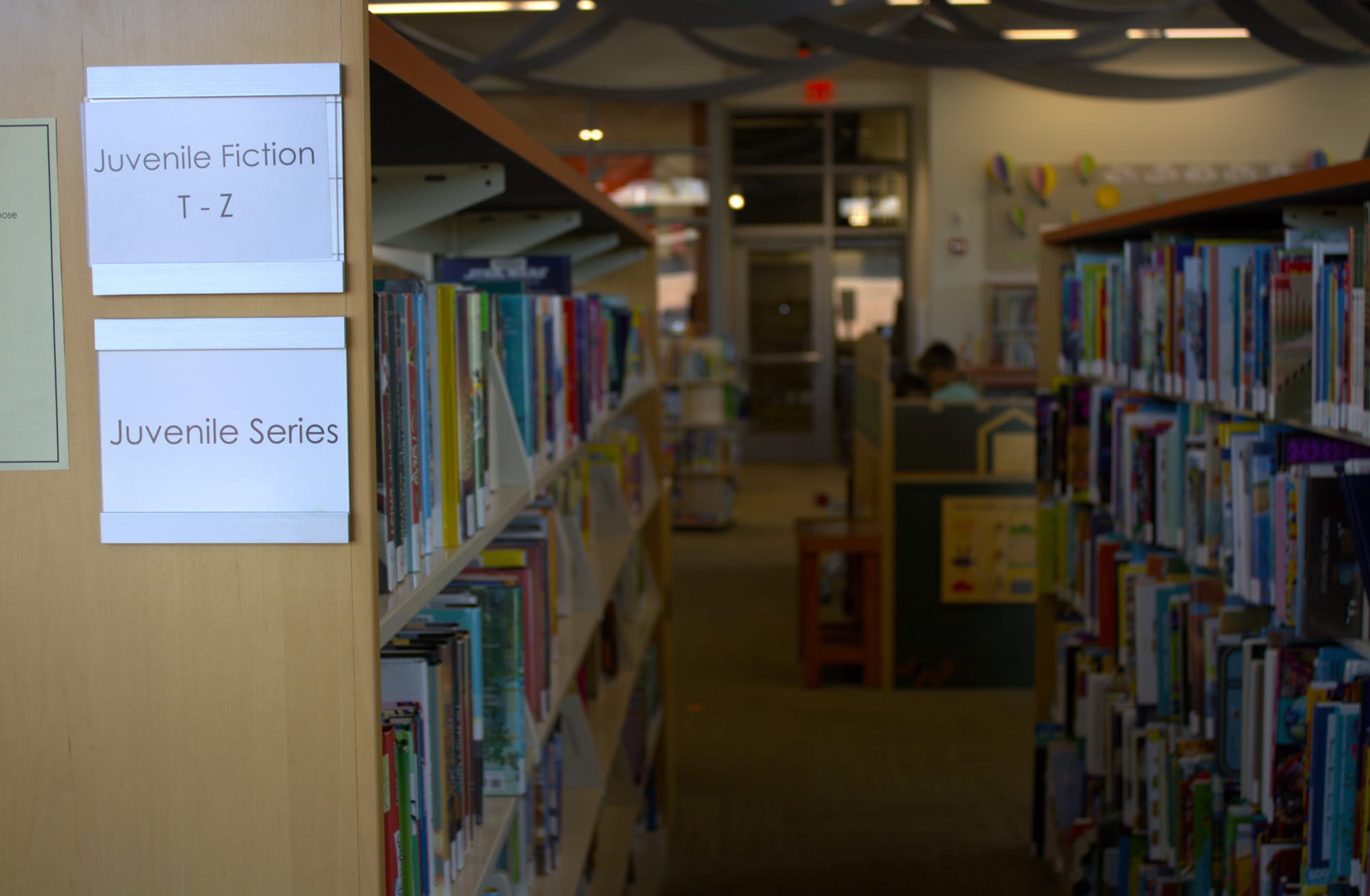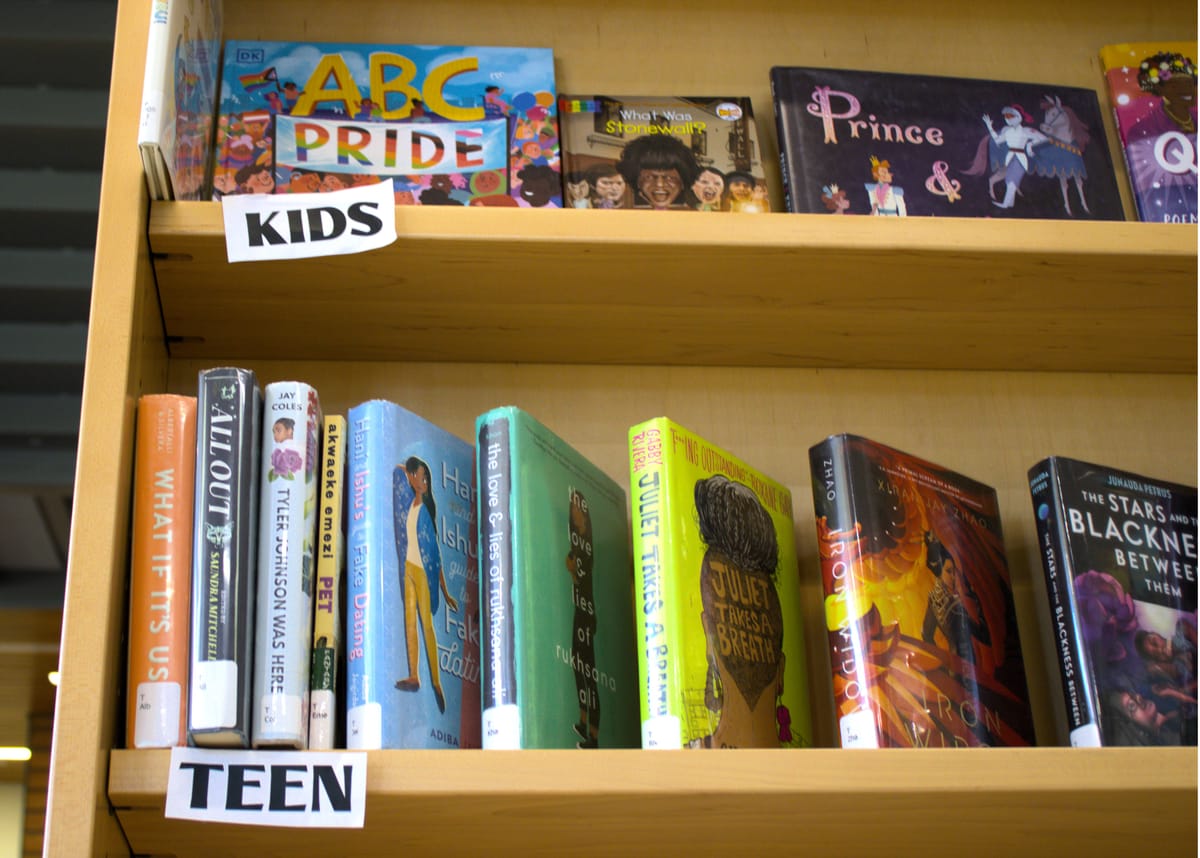Megan Kuykendoll doesn't want her kids to live in a community where public libraries' shelves are devoid of queer identities and LGBTQ representation.
Megan Kuykendoll doesn't want her kids to live in a community where public libraries' shelves are devoid of queer identities and LGBTQ representation.
"The key part of being in a community with a variety of beliefs is helping your kids learn how to navigate those things, to be aware of those things, and then to fragment in context of your family," she said. "If someone is worried and really wants to drive those points home with their kids, they can have those conversations, [but] they don't need to take those materials and resources away from other people who do want them to be available."
Kuykendoll, a Miami University professor and member of the LGBTQ community, served on the board of the Oxford Area PFLAG, a national nonprofit organization devoted to friends and family members of the LGBTQ community. Through her work with the organization, Kuykendoll is working to promote belonging and safety for queer and non-traditional families and encourage inclusive literature programs.
In Ohio, two bills are putting LGBTQ literature at risk. House Bill 556, which is going through the Ohio House Criminal Justice Committee, would make it a felony for teachers and librarians to distribute titles deemed "obscene."
House Bill 662, introduced last week, is going through the government oversight committee. The bill would “require each board of public library trustees to adopt a policy that prohibits its libraries from displaying matter harmful to juveniles, and to redistribute the public library funds of libraries that fail to do so,” the legislature states.
However, the legislation doesn't clearly state what materials would be considered indecent. In the advancing bill, the words "obscenity" and "obscene" show up three and eight times, respectively.
Despite bills at the state level, the Talawanda School District is working to maintain titles in its libraries from a wide variety of authors and perspectives.

"Our district is not about banning books, and our district isn't about censorship," Lindsey Gregg, the director of curriculum for Talawanda, said. "So we try our best to make sure that students have an opportunity to have books at their fingertips that are all walks of the world and cover all the people that are representative of Talawanda."
Gregg said she isn't worried about the bill right now because as a public school they'll always have parents and community members voicing their concerns and disapprovals. In the past five years, Gregg said the district has only had two issues concerning books offered in their libraries.
Talawanda has two policies in place to ensure the district is following the Board of Education's guidelines. One is for controversial issues, and the other is public complaints.
"We know as a public institution that there are always going to be controversial issues that come up in education, specifically at the high school in some of those curricular pedagogy classes," Gregg said. "And so the Board of Education's stance on that is if it's helping and teaching students to make decisions for what's best for them and what's best for their family, then we support that."
For public complaints, the district allows for "book reviews" or a complaint containing the book's author, title, publisher, the complainant's familiarity with the material objected to, specific sections they objected to and their reasoning. The Director of Curriculum then reads the book and may appoint a committee, with the superintendent's approval, to recommend the book be taken out or not. The complainant may appeal to the Board.
According to the Board of Education's policy manual, "no challenged material may be removed solely because it presents ideas that may be unpopular or offensive to some."
PFLAG's Rainbow Reading Program increases access to LGBTQ books
Chip Rogers, president of Oxford area PFLAG, said the organization has done much in the past to support, educate and advocate for LGBTQ people and their families ranging from the Rainbow Reading Program to Talawanda scholarships promoting diversity. PFLAG also hosts speakers to talk about state bills and how legislation impacts LGBTQ individuals.
"We're just members of the community who want to amplify allyship as much as possible," Rogers said. "And we're not interested in studying policy, we're not interested in making decisions for others. We are there to support others."
This summer, Lane Library is sponsoring a book club organized by PFLAG for anyone in the community to attend. Kuykendoll said the book club's purpose is to empower more allies to have deeper conversations with their family and community members to dispel myths about queer and trans people.

"Some of the kids books are just about having two moms or two dads or something, and people want to call that obscene, because it isn't their definition of a family structure that they personally believe," Kuykendoll said. "But there's nothing about the book, about the words that are in the book, or the expression of love in the family that has anything that would otherwise be classified as obscene."
Through PFLAG's help, the Talawanda tries to incorporate more inclusivity by placing diverse books in their schools and public libraries through the Rainbow Reading program. Rogers said it's important the books are donated to ensure school funds aren't being used.
The program is designed to give teachers access to books they wouldn't otherwise have, but an additional problem they've faced is the vagueness in the term "obscenity" similar to other districts. House Bill 556 isn't required to define it, though, since Ohio Revised Code Section 2907.01 offers its own definition. According to the code, material that is obscene appeals to prurient interest, arouses lust by displaying sexual activity or displays bodily functions without scientific interest.
"We understand that there's a line of what obscenity is," Rogers said, "but it goes back to if we already have that, then what is the purpose of [the house bills], other than to really target certain communities?"





